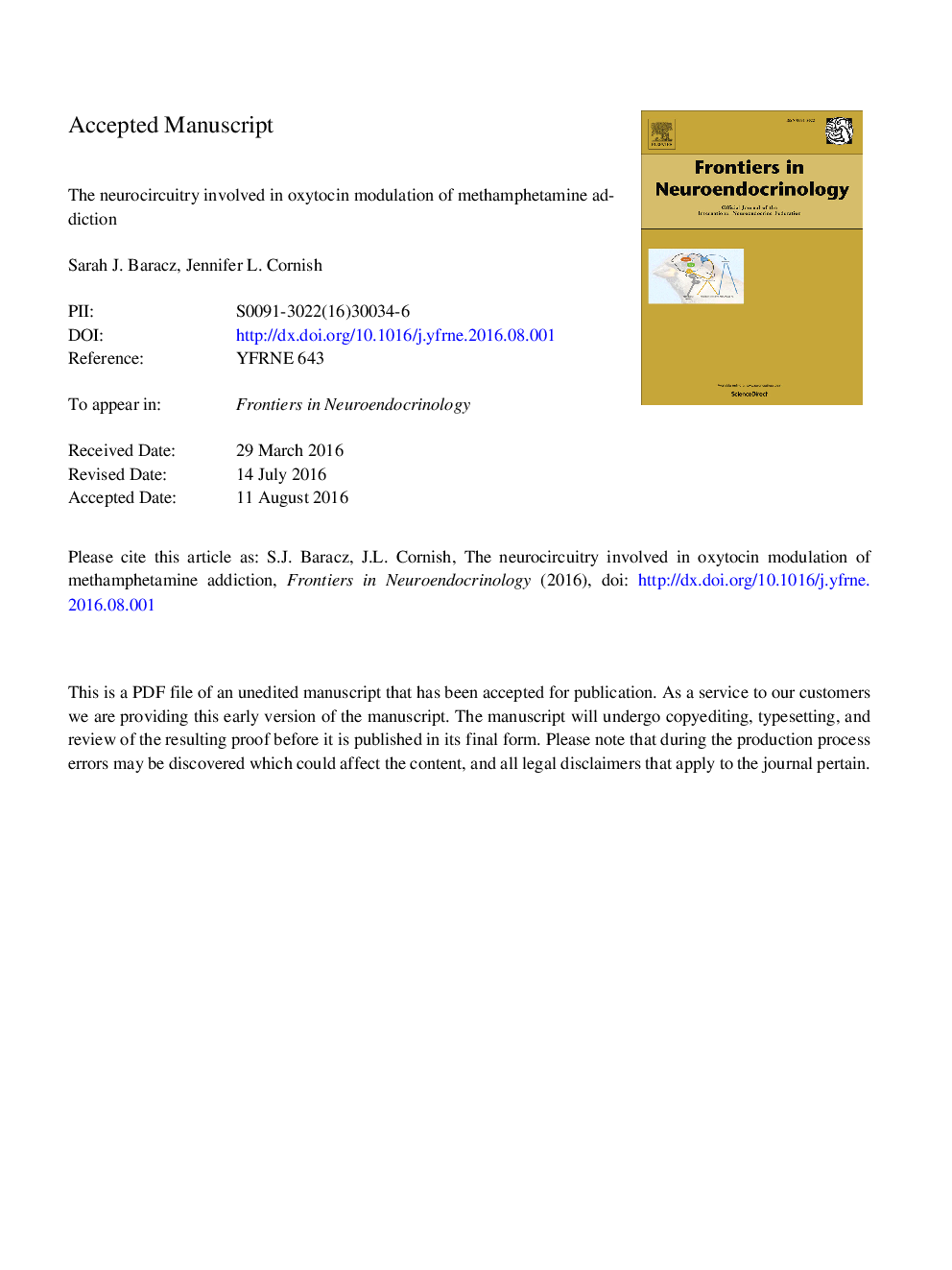| Article ID | Journal | Published Year | Pages | File Type |
|---|---|---|---|---|
| 5587497 | Frontiers in Neuroendocrinology | 2016 | 66 Pages |
Abstract
The role of oxytocin in attenuating the abuse of licit and illicit drugs, including the psychostimulant methamphetamine, has been examined with increased ferocity in recent years. This is largely driven by the potential application of oxytocin as a pharmacotherapy. However, the neural mechanisms by which oxytocin modulates methamphetamine abuse are not well understood. Recent research identified an important role for the accumbens core and subthalamic nucleus in this process, which likely involves an interaction with dopamine, glutamate, GABA, and vasopressin. In addition to providing an overview of methamphetamine, the endogenous oxytocin system, and the effects of exogenous oxytocin on drug abuse, we propose a neural circuit through which exogenous oxytocin modulates methamphetamine abuse, focusing on its interaction with neurochemicals within the accumbens core and subthalamic nucleus. A growing understanding of exogenous oxytocin effects at a neurochemical and neurobiological level will assist in its evaluation as a pharmacotherapy for drug addiction.
Related Topics
Life Sciences
Biochemistry, Genetics and Molecular Biology
Endocrinology
Authors
Sarah J. Baracz, Jennifer L. Cornish,
